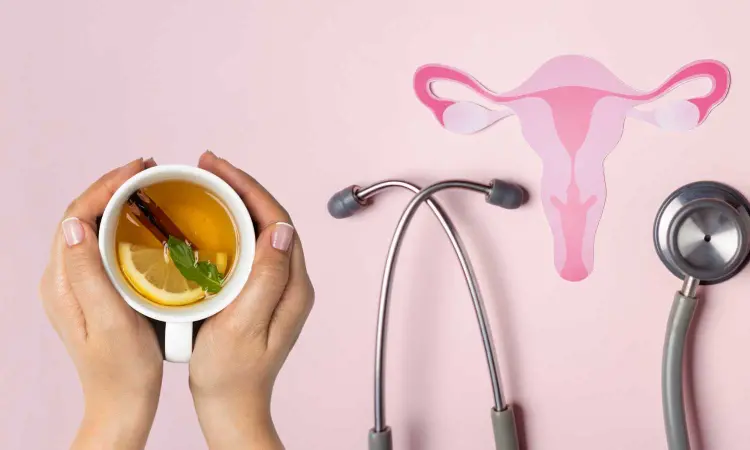- Home
- Medical news & Guidelines
- Anesthesiology
- Cardiology and CTVS
- Critical Care
- Dentistry
- Dermatology
- Diabetes and Endocrinology
- ENT
- Gastroenterology
- Medicine
- Nephrology
- Neurology
- Obstretics-Gynaecology
- Oncology
- Ophthalmology
- Orthopaedics
- Pediatrics-Neonatology
- Psychiatry
- Pulmonology
- Radiology
- Surgery
- Urology
- Laboratory Medicine
- Diet
- Nursing
- Paramedical
- Physiotherapy
- Health news
- Fact Check
- Bone Health Fact Check
- Brain Health Fact Check
- Cancer Related Fact Check
- Child Care Fact Check
- Dental and oral health fact check
- Diabetes and metabolic health fact check
- Diet and Nutrition Fact Check
- Eye and ENT Care Fact Check
- Fitness fact check
- Gut health fact check
- Heart health fact check
- Kidney health fact check
- Medical education fact check
- Men's health fact check
- Respiratory fact check
- Skin and hair care fact check
- Vaccine and Immunization fact check
- Women's health fact check
- AYUSH
- State News
- Andaman and Nicobar Islands
- Andhra Pradesh
- Arunachal Pradesh
- Assam
- Bihar
- Chandigarh
- Chattisgarh
- Dadra and Nagar Haveli
- Daman and Diu
- Delhi
- Goa
- Gujarat
- Haryana
- Himachal Pradesh
- Jammu & Kashmir
- Jharkhand
- Karnataka
- Kerala
- Ladakh
- Lakshadweep
- Madhya Pradesh
- Maharashtra
- Manipur
- Meghalaya
- Mizoram
- Nagaland
- Odisha
- Puducherry
- Punjab
- Rajasthan
- Sikkim
- Tamil Nadu
- Telangana
- Tripura
- Uttar Pradesh
- Uttrakhand
- West Bengal
- Medical Education
- Industry
Beyond the diagnosis: a call for equity in PCOS fertility care across racial and socioeconomic lines

MP Sets Up State’s First Gynaecology Centre
Despite significant advancements in reproductive endocrinology and infertility over the past decade, systemic inequities continue to plague the healthcare landscape. These inequities often disproportionately affect patients from marginalized racial and socioeconomic backgrounds. Patients with polycystic ovary syndrome (PCOS), one of the most common disorders impacting reproductive aged women, are no exception to this.
Existing literature has identified various factors contributing to disparities in access to fertility care across racial groups, including societal, economic, and geographic variables, which can result in delays in care for affected patients. Compared with White women, African American and Hispanic women face greater challenges in securing appointments, missing work for treatments, and covering costs. Moreover, African American and Hispanic women are more likely to be self-referred or referred by friends or family and are more likely to experience longer duration of infertility before receiving fertility care than White women. An investigation by Dongarwar et al. highlighted similar concerns and showed that compared with non-Hispanic White women, non-Hispanic Asian women had a 7% lower likelihood and non-Hispanic Black and Hispanic women had a 70% lower likelihood of receiving any infertility treatment. Although these studies have provided valuable insights, there has been limited investigation into how these factors specifically impact patients with PCOS.
To investigate the factors at play for those with PCOS, Applebaum et al. explored the critical question: where do disparities in fertility treatment lie for those with PCOS across racial and socioeconomic lines? Their comprehensive analysis delved into both patient and physician factors that could contribute to inequities.
By focusing on the use of clomiphene citrate, letrozole, and injectable gonadotropins, the study revealed that Black patients, those with household incomes below the federal poverty line, and those with public insurance were significantly less likely to be prescribed these fertility medications compared with White patients, those with household incomes above the national median, and those with commercial insurance. These findings add to the existing literature, underscoring the urgent need to address the disparities that continue to undermine the quality of care for patients with PCOS.
The study also sheds light on disparities in the provision of treatment on the basis of the type of healthcare provider. Patients were less likely to be prescribed these fertility medications from general obstetrician-gynecologists and family medicine and internal medicine physicians compared with those from reproductive endocrinologists. This finding highlights the need for proactive measures within the field of reproductive medicine. For many patients with PCOS, the first point of contact is their primary care provider or general obstetrician-gynecologist. Enhancing collaboration between these providers and reproductive endocrinologists, coupled with robust support and education initiatives, is essential to ensure that patients have access to the comprehensive and equitable care they deserve.
Only five patients in the study were uninsured, and <3% had incomes below the federal poverty line. This limited representation of some of the most vulnerable populations underscores two important points. First, the study’s findings may only begin to reveal the full extent of inequity affecting these groups. Second, the low percentage of such patients may reflect existing barriers to healthcare access, emphasizing the need for expanded access through improved insurance coverage and care availability. To better understand and address these disparities, future research should prioritize the inclusion of low-income and uninsured individuals to further assess the barriers to care faced by this population.
The findings of Applebaum et al. highlight the need for targeted interventions to bridge the gap in fertility care across racial and socioeconomic groups affected by PCOS. Establishing these interventions will require a multifaceted approach involving policy changes, community outreach, and the development of culturally competent care models that address the unique needs of this population.
Source: Stephanie Hallisey, M.D. Lawrence Engmann, M.D.;FertSert; VOL. 122 NO. 5 / NOVEMBER 2024 https://doi.org/10.1016/j.fertnstert.2024.08.341
MBBS, MD Obstetrics and Gynecology
Dr Nirali Kapoor has completed her MBBS from GMC Jamnagar and MD Obstetrics and Gynecology from AIIMS Rishikesh. She underwent training in trauma/emergency medicine non academic residency in AIIMS Delhi for an year after her MBBS. Post her MD, she has joined in a Multispeciality hospital in Amritsar. She is actively involved in cases concerning fetal medicine, infertility and minimal invasive procedures as well as research activities involved around the fields of interest.


